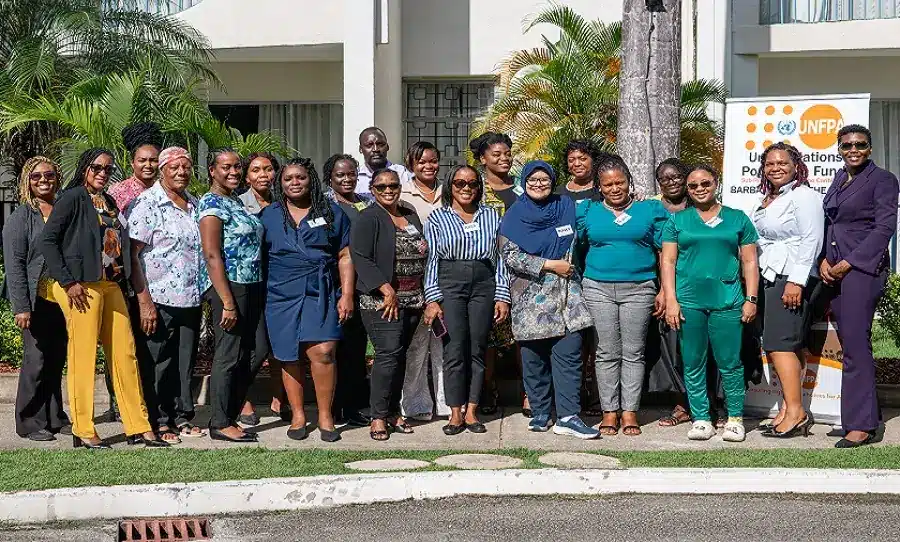Healthcare Professionals Across the Region Complete UNFPA-Supported Training on Comprehensive Clinical Management of Rape and Intimate Partner Violence
Sixteen healthcare professionals from Five Caribbean Islands, Barbados, Dominica, Grenada, St. Lucia, and St. Vincent and the Grenadines have successfully completed a transformative training program on Comprehensive Clinical Management of Rape (CMR) and Intimate Partner Violence (IPV). Held from November 25-29, 2024, at the Blue Horizon Hotel, this workshop, supported by the #BuildBackEqual (BBE) project and funded by Canada, emphasized equipping participants with survivor-centered approaches to address sexual violence, gender-based violence (GBV), and IPV in their respective countries.
The training focused on fostering compassionate, evidence-based care for survivors, ensuring that healthcare providers are equipped with the knowledge, practical skills, and interpersonal tools to deliver support in times of crisis. Facilitated by UNFPA experts Dr. Rosilawati ‘Rossy’ Anggraini and Michael Atim, the program featured lectures, discussions, and immersive role-playing exercises designed to enhance trauma-informed care while maintaining the dignity and safety of survivors.
Dr. Anggraini highlighted that the workshop aligns with the UNFPA’s mission to prioritize care for rape survivors, especially during emergencies, by building the capacity of healthcare practitioners. Throughout the sessions, participants were trained to foster empathetic and effective communication with survivors while understanding the unique needs of women, men, children, and adolescents affected by IPV and GBV.
The workshop also provided a platform for participants to share personal experiences and suggest actionable solutions to address the gaps in their countries’ responses to sexual harassment and rape cases. Recommendations included strengthening legislation, improving survivor support services, and fostering public awareness campaigns to combat stigma and foster community resilience.
At the conclusion of the five-day workshop, all participants received certificates of completion, signifying their readiness to apply their newly acquired skills. They expressed their appreciation for the program, noting its relevance and practicality. One participant shared, “This training has empowered us with the tools and strategies needed to support survivors and create meaningful change in our healthcare systems.”
To ensure lasting impact, participants developed specific country action plans to address existing gaps and improve the quality of CMR services. These plans include commitments to draft Standard Operating Procedures (SOPs) for health sector responses to GBV in countries where such guidelines are currently absent. UNFPA SROC will conduct a post-training follow-up to review the progress of these action plans, further supporting participants in implementing systemic changes to benefit survivors.
The Comprehensive CMR and IPV Training has reinforced the pivotal role healthcare professionals play in addressing IPV and GBV, ensuring that survivors receive the care and dignity they deserve while creating a ripple effect of systemic improvement across the Caribbean.





